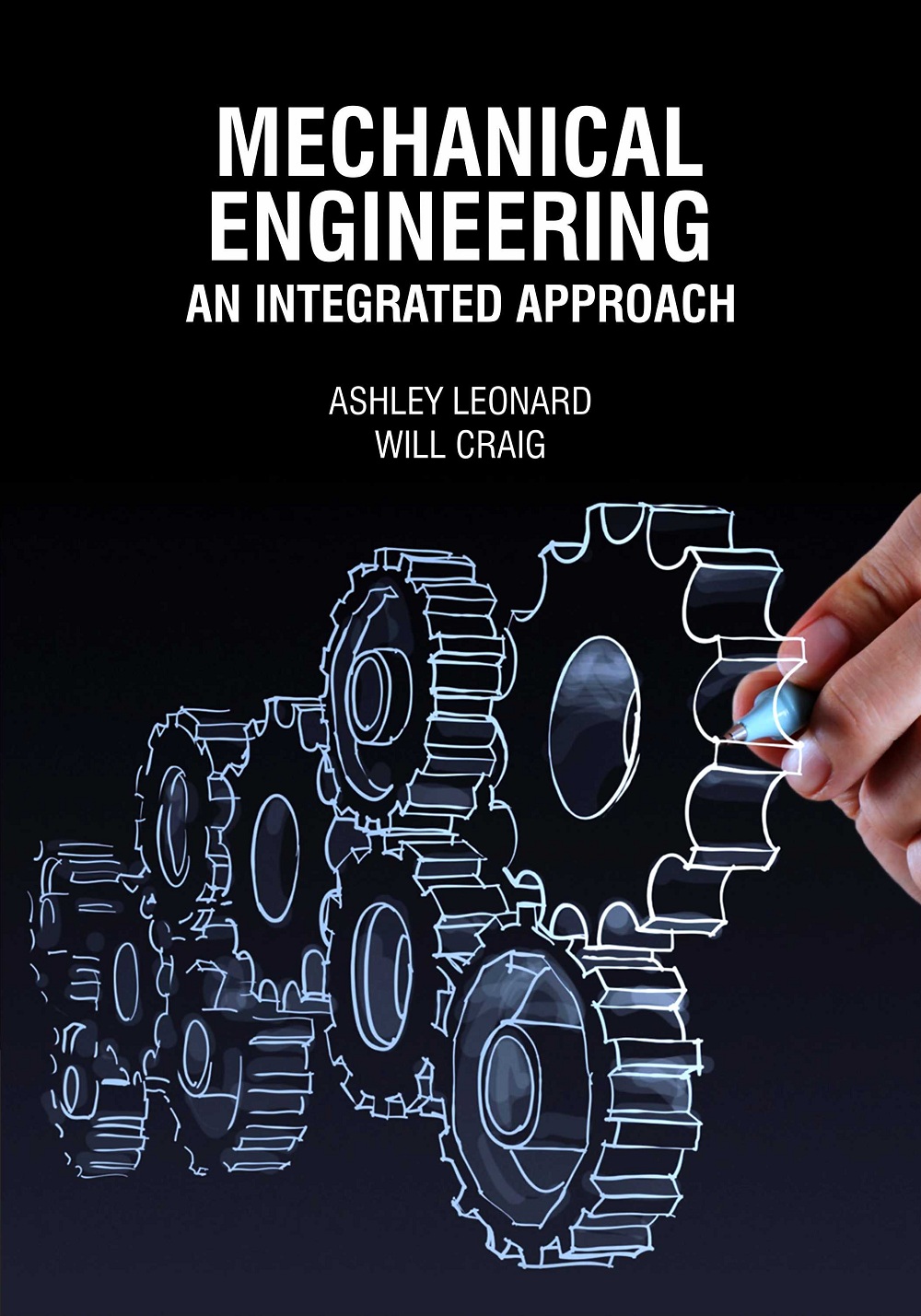Mechanical Engineering : An Integrated Approach Ashley Leonard & Will Craig
- ISBN: 9781788820677
- Edition: 1st
- ©Year: 2020
- List Price : 170
About the Book
Mechanics is the branch of science concerned with the behavior of physical bodies when subjected to forces or displacements, and the subsequent effects of the bodies on their environment. The scientific discipline has its origins in Ancient Greece with the writings of Aristotle and Archimedes. During the early modern period, scientists such as Galileo, Kepler, and especially Newton, laid the foundation for what is now known as classical mechanics. It is a branch of classical physics that deals with particles that are either at rest or are moving with velocities significantly less than the speed of light. It can also be defined as a branch of science which deals with the motion of and forces on objects. A knowledge of fluid mechanics is essential for the chemical engineer because them ajority of chemical -processing operation sarecon ducted eitherpartlyor totally in the fluid phase. Examples of such operations abound in the biochemical, chemical, energy, fermentation, materials, mining, petroleum, pharmaceuticals, polymer, and waste-processing industries. The zeroth law of thermodynamics involves some simple definitions of thermodynamic equilibrium. Thermodynamic equilibrium leads to the large scale definition of temperature, as opposed to the small scale definition related to the kinetic energy of the molecules. The first law of thermodynamics relates the various forms of kinetic and potential energy in a system to the work which a system can perform and to the transfer of heat. This book provides a basic practical introduction to engineering mechanics and is written specifically for those students who need a thorough grounding in the subject to participate fully in their engineering course.
Contents: 1. Fluid Mechanics, 2. Engineering Mechanics, 3. Engineering Thermodynamics, 4. Industrial and Steam Power Plant, 5. Steam Generator for Electric Power, 6. Heat Transfer, 7. Steam Boilers, 8. Combustion Engines and Process, 9. Strength of Materials in Physics, 10. Fabrication Processes and Construction, 11. Fluid and Hydrostatics.
Ashley Leonard is Professor and Chair of the Department of Mechanical Engineering-Engineering Design at Sweden. He received his "Diploma in Engineering" (Masters of Science in Mechanical Engineering) and his Ph.D. in Engineering, both from the Sweden. Previously, he was Visiting Professor in the Department of Mechanical Engineering. He has over 21 years of experience in teaching undergraduate as well as postgraduate students of Mechanical Engineering. He has been guiding GATE students for more than 6 years. His specialty areas include Cloud Computing, linear Integrated Circuits, Manufacturing Engineering & Technology, and Mechanical Engineering etc. He is the author of more than 60 journal papers and six books on dynamics, mechanical impact, mechanisms, robots and biomechanics.
Will Craig is Professor in the Department of Mechanical Engineering. He earned a B.S. degree in Mechanical Engineering with distinction, and a Ph.D. in Mechanical Engineering. His specialty areas include impact dynamics, biomechanics, nonlinear dynamics, flexible multimode systems and robotics. He is the author of more than 38 journal papers and six books on dynamics, mechanical impact, mechanisms, robots and biomechanics. In this book, Will Craig covers major areas of mechanical engineering with succinct coverage of the definitions, formulas, examples, theory, proofs, and explanations ofall principle subject areas.

